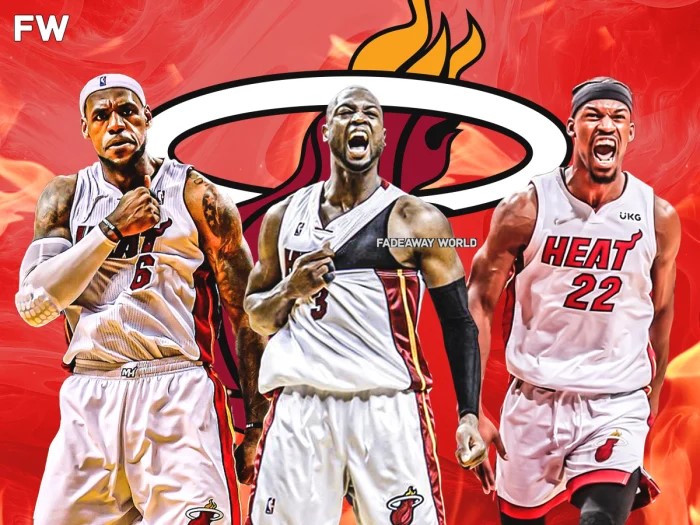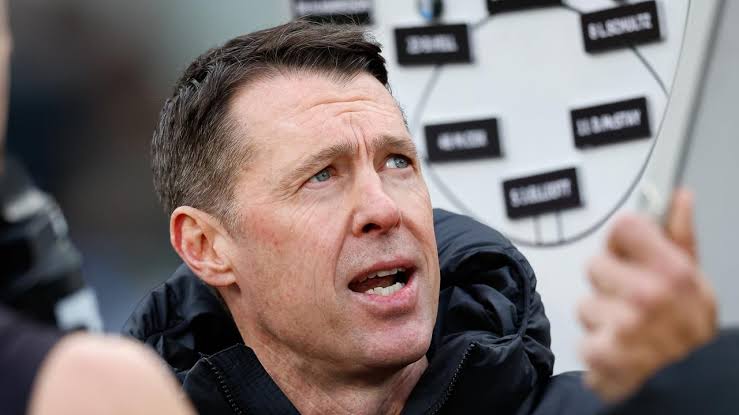Miami Heat: Top Player from Each Season of the 21st Century
The Miami Heat have distinguished themselves as one of the NBA’s top franchises in the 21st century, thanks to a combination of elite players, strategic management, and a strong winning mentality. From Alonzo Mourning’s defensive dominance in the early 2000s to the “Big Three” era led by LeBron James, and now the tenacity of Jimmy Butler, each season has featured a standout player who has shaped the team’s success. This article reviews the most impactful player for each season of the 21st century, showcasing those who made the greatest contributions to the Heat’s performance on the court.
2000-01 Season – Eddie Jones
Eddie Jones was the standout performer for the Heat, leading the team with 17.4 points per game and contributing across the board with rebounds, assists, steals, and blocks. His all-around play was vital during a season of significant roster changes, helping the Heat to a 50-32 record, though they were eliminated in the first round of the playoffs.

2001-02 Season – Eddie Jones
Continuing his role as the Heat’s primary scorer, Eddie Jones averaged 18.3 points per game. Despite his strong performance, the Heat struggled, ending the season with a 36-46 record and missing the playoffs. Jones’ leadership remained crucial amidst the team’s challenges.
2002-03 Season – Eddie Jones
Jones maintained his role as the team’s leading scorer with an average of 18.5 points per game. Despite his consistent output, the Heat had a difficult season, finishing with a 25-57 record. Jones’ steady performance highlighted his professionalism during a tough period.
2003-04 Season – Lamar Odom
Lamar Odom emerged as the Heat’s best player, showcasing his versatility with averages of 17.1 points, 9.7 rebounds, and 4.1 assists per game. His contributions helped the Heat to a 42-40 record and a playoff berth, although they were defeated in the Eastern Conference Semifinals.

2004-05 Season – Shaquille O’Neal
Shaquille O’Neal had a transformative impact on the Heat, averaging 22.9 points and 10.4 rebounds per game. His dominance in the paint helped Miami achieve a 59-23 record and advance to the Eastern Conference Finals, although they were narrowly defeated by the Detroit Pistons.

2005-06 Season – Dwyane Wade
Dwyane Wade led the Heat to their first NBA Championship, averaging 27.2 points, 5.7 rebounds, and 6.7 assists per game. His extraordinary performance in the Finals, where he was named Finals MVP, defined his season and secured his place as the Heat’s premier player.
2006-07 Season – Dwyane Wade
Wade continued to excel, averaging 27.4 points and 7.5 assists per game. Despite battling injuries, he maintained his high level of play and was selected for the All-NBA Third Team. The Heat, however, struggled and were eliminated in the first round of the playoffs.
2007-08 Season – Dwyane Wade
Despite injuries limiting him to 51 games, Wade still averaged 24.6 points and 6.9 assists per game. His efforts were not enough to prevent the Heat from finishing with a 15-67 record, but his resilience was evident throughout a challenging season.
2008-09 Season – Dwyane Wade
Wade delivered a career-best season, leading the league in scoring with 30.2 points per game and adding 7.5 assists. His performance helped the Heat secure a playoff spot, although they were eliminated in the first round. Wade’s dominance reaffirmed his status as an elite player.

2009-10 Season – Dwyane Wade
Wade continued to be a force, averaging 26.6 points and 6.5 assists per game. Despite the Heat’s first-round exit from the playoffs, Wade’s outstanding performance earned him another All-NBA First Team selection and set the stage for the arrival of the “Big Three.”
2010-11 Season – LeBron James
LeBron James made an immediate impact in his first season with the Heat, averaging 26.7 points, 7.5 rebounds, and 7.0 assists per game. His leadership guided the Heat to the NBA Finals, though they were defeated by the Dallas Mavericks. James’ performance marked the beginning of a new era for the Heat.

2011-12 Season – LeBron James
James reached new heights, leading the Heat to their second NBA Championship with averages of 27.1 points, 7.9 rebounds, and 6.2 assists per game. His stellar play earned him the NBA MVP and Finals MVP awards, capping off a remarkable season.
2012-13 Season – LeBron James
James continued his dominance with averages of 26.8 points, 8.0 rebounds, and 7.3 assists per game. He led the Heat to a franchise-record 66 wins and a second consecutive NBA Championship, earning his fourth MVP award and another Finals MVP.
2013-14 Season – LeBron James
LeBron James maintained his high level of play, averaging 27.1 points, 6.9 rebounds, and 6.3 assists per game. Despite leading the Heat to the NBA Finals for a fourth consecutive year, they were defeated by the San Antonio Spurs. James’ performance remained exceptional throughout the season.
2014-15 Season – Dwyane Wade
With LeBron James gone, Dwyane Wade stepped up as the Heat’s leading player, averaging 21.5 points, 3.5 rebounds, and 4.8 assists per game. His performance, despite injuries, helped keep the Heat competitive during a season of transition, earning him another All-Star selection.
2015-16 Season – Dwyane Wade
Wade continued to be the Heat’s central figure, averaging 19.0 points, 4.1 rebounds, and 4.6 assists per game. His clutch performances and leadership led the Heat to the Eastern Conference Semifinals, though they were narrowly defeated by the Toronto Raptors.
2016-17 Season – Goran Dragic
Goran Dragic emerged as the Heat’s top player, averaging 20.3 points and 5.8 assists per game. His performance was crucial during a season without Dwyane Wade and Chris Bosh. Although the Heat missed the playoffs, Dragic’s leadership helped the team stay competitive.

2017-18 Season – Goran Dragic
Dragic continued to lead the Heat, averaging 17.3 points and 4.8 assists per game. His consistent play earned him his first All-Star selection. Despite the Heat missing the playoffs, Dragic’s contributions were vital throughout the season.
2018-19 Season – Hassan Whiteside
Hassan Whiteside was a defensive force, averaging 12.3 points and 11.3 rebounds per game. His shot-blocking and rebounding were key for the Heat, though they missed the playoffs with a 39-43 record. Whiteside’s impact was significant despite team struggles.

2019-20 Season – Jimmy Butler
Jimmy Butler became the Heat’s leader, averaging 19.9 points, 6.7 rebounds, and 6.0 assists per game. His leadership helped the Heat reach the NBA Finals, although they were defeated by the Lakers. Butler’s performance reestablished the Heat as contenders.
2020-21 Season – Bam AdebayoBam Adebayo was pivotal for the Heat, averaging 18.7 points, 9.0 rebounds, and 5.4 assists per game. His defensive skills earned him an All-Defensive Second Team selection. Despite the Heat’s early playoff exit, Adebayo’s contributions were crucial.
2021-22 Season – Jimmy Butler

Butler continued to lead the Heat, averaging 21.4 points, 5.9 rebounds, and 5.5 assists per game. His efforts guided the Heat to the top seed in the Eastern Conference and an Eastern Conference Finals appearance. Although they fell short of the NBA Finals, Butler’s performance was outstanding.
2022-23 Season – Jimmy Butler
In the 2022-23 season, Butler continued to excel, averaging 22.9 points, 5.9 rebounds, and 5.3 assists per game. His leadership and performance kept the Heat competitive, showcasing his continued importance to the team.



